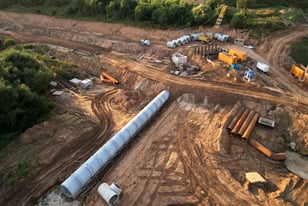Many wastewater departments rely on grant funding to outfit inspection teams with the resources they need. These funds come from a variety of different sources and cover the costs of essential sewer rehab and maintenance operations.
Understanding the Cost of Sewer Inspection
The general public is often unaware of the costs associated with sewer inspection, maintenance and rehabilitation. For many utilities, it is vital to ensure that projects stay on budget and funding is available throughout the year. Like most utilities, sewer departments must be conscious and keep records of how money is spent so funding needs can be assessed for the following year.
Sewer teams, like most other municipal operations, rarely have a rotating budget that affords the luxury of the latest and most flexible sewer inspection software and equipment at all times. This makes the market all the more innovative, but also more competitive, requiring municipalities to think hard about expenses before investing. However, with grant funding, money can be allocated to specific operations or projects without sacrificing resources normally designated for routine operations.
Common Types of Sewer Inspection Grants
Wastewater utilities commonly seek out two particular types of grants: competitive grants and formula grants. While competitive grants are based on merit, formula grants come with predetermined qualifications or requirements in order for recipients to receive funding.
- Competitive Grants, also known as “discretionary” funding, are usually awarded based on the merit of an application. Sewer teams can submit proposals for specific projects or operations that meet the requirements of the state or grant funder. For instance, a grant may be designed specifically for projects that increase resiliency during natural disasters, and only applicants addressing these types of projects will receive funding. These applications typically outline where money will go and how it will benefit the community, and recipients often need to follow up after the project with results and final allocation details. Usually, a team of reviewers determines who gets this funding, and they may award funding to either one or multiple applicants.
- Formula Grants are designed for specific distribution to predetermined qualifiers. The Bipartisan Infrastructure Law that passed in 2021 is an example of a formula grant intended to revitalize large segments of outdated infrastructure over the next 10 years, including wastewater systems with lead pipes. This was set forth by the U.S. government for distribution to infrastructure projects alone. Formula grants offer pre-designated funding for specific purposes outlined by the funder. It is not discretionary like a competitive grant, because the state must provide funding to all qualified utilities, departments and projects, so long as they apply for the grant.
Where to Find Wastewater Grants
State Websites
Whether federal or otherwise, wastewater grants for municipal sewer departments most commonly come through the state. Grant details and applications are often readily available on the state website a municipality belongs to. Depending on the scale and scope of the grant, details are also sometimes available via congress.gov and whitehouse.gov.
EPA
The EPA offers specialized funding opportunities both for small and rural systems as well as broader wastewater management projects. Because the organization is invested in the environmental impact of wastewater, the EPA provides a useful hub for available grants that come down from the federal government as well as those provided directly by the EPA to support clean water and wastewater management projects.
There are several different kinds of grants available in the wastewater industry, and more places to find them than are listed here. Explore your state or local representative's website, and do your own research to identify funding sources that will best serve your team’s needs.
But in order to know just what those needs are, it’s important to have a plan for recordkeeping and budgeting. WinCan’s rehab planning module allows users to build detailed method catalogs and compare the costs of different rehab projects. Not only do sewer inspection teams gain budgetary insights from these comparisons, but they also have the ability to track how grant funds are being allocated for a given project.
See WinCan’s rehab planning and budgeting capabilities at work with a free demo:







